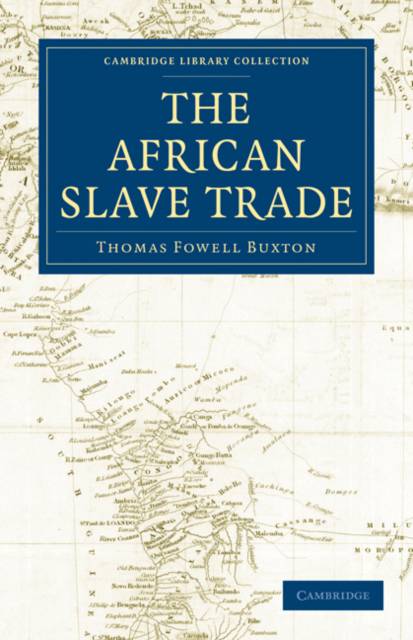
Je cadeautjes zeker op tijd in huis hebben voor de feestdagen? Kom langs in onze winkels en vind het perfecte geschenk!
- Afhalen na 1 uur in een winkel met voorraad
- Gratis thuislevering in België vanaf € 30
- Ruim aanbod met 7 miljoen producten
Je cadeautjes zeker op tijd in huis hebben voor de feestdagen? Kom langs in onze winkels en vind het perfecte geschenk!
- Afhalen na 1 uur in een winkel met voorraad
- Gratis thuislevering in België vanaf € 30
- Ruim aanbod met 7 miljoen producten
Zoeken
Omschrijving
Sir Thomas Fowell Buxton (1786-1845) was a committed social reformer throughout his life and became involved with the abolition of slavery during his time as an MP, taking over the leadership of the abolition movement in the British House of Commons after William Wilberforce retired in 1825. Following the abolition of slavery in Britain and its colonies in 1833, and his loss of his Parliamentary seat in 1837, Buxton concerned himself with the slave trade along the African coast still perpetrated by Africans, Arabs and the Portuguese. The results of his research and conclusions were originally published in 1839, and demonstrate the extent to which slave trading still existed, and its human cost in mortality and misery, despite attempts at policing by the British navy. Buxton explores the theory that the key to complete abolition is a change in market economics to eliminate the need for African slave labour.
Specificaties
Betrokkenen
- Auteur(s):
- Uitgeverij:
Inhoud
- Aantal bladzijden:
- 262
- Taal:
- Engels
- Reeks:
Eigenschappen
- Productcode (EAN):
- 9781108027687
- Verschijningsdatum:
- 27/01/2011
- Uitvoering:
- Paperback
- Formaat:
- Trade paperback (VS)
- Afmetingen:
- 140 mm x 216 mm
- Gewicht:
- 335 g

Alleen bij Standaard Boekhandel
+ 128 punten op je klantenkaart van Standaard Boekhandel
Beoordelingen
We publiceren alleen reviews die voldoen aan de voorwaarden voor reviews. Bekijk onze voorwaarden voor reviews.









